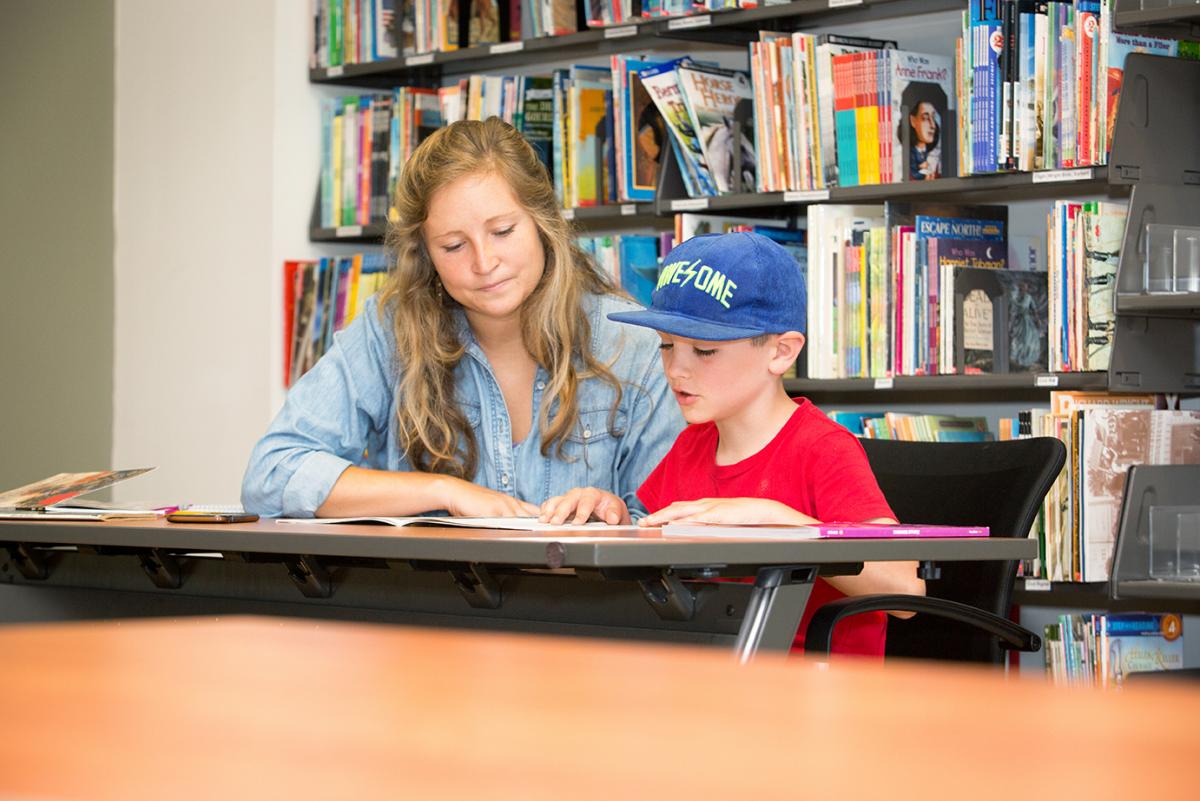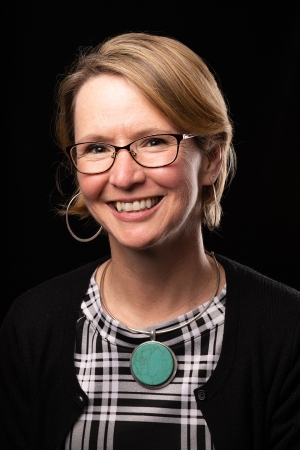Dr. Devery Mock Ward, an associate professor in the Department of Reading Education and Special Education (RESE) at Appalachian State University's Reich College of Education (RCOE), has been named director of the Anderson Reading Clinic. She served as assistant director from August 2014 until August 2018 when her appointment as director began.
RESE department chair, Dr. Woodrow Trathen, said, "Devery has been committed to the work we do in the Anderson Reading Clinic from the very first time she stepped onto the Appalachian campus as an MA student, and that commitment has grown stronger as she has progressed in her career. She is a gifted teacher: of clinic students, of Appalachian students, of faculty in our department. I am so pleased to see her move into the role of Director of the Anderson Reading Clinic."
"Devery has been committed to the work we do in the Anderson Reading Clinic from the very first time she stepped onto the Appalachian campus as an MA student, and that commitment has grown stronger as she has progressed in her career. She is a gifted teacher: of clinic students, of Appalachian students, of faculty in our department. I am so pleased to see her move into the role of Director of the Anderson Reading Clinic."
Ward earned a Ph.D. in special education from the University of Virginia, an M.A. in reading education from Appalachian State University, and a B.A. in international studies from University of North Carolina Chapel Hill. As a student at Appalachian, Ward was the recipient of the Uberto Price Reading/Language Arts Scholarship.
She joined the RCOE faculty as an assistant professor in 2006. Ward was promoted to associate professor in 2010. In addition, she currently serves as the Accelerated Admissions Coordinator for the reading education master's program. Her area of research is dyslexia, and she teaches reading education courses for pre-service teachers and master's candidates.
Prior to coming to Appalachian, Ward was an assistant professor of special education at the University of Iowa, an English teacher at Colorado Timberline Academy, special educator/literary specialist for Catawba County Schools, and student teaching supervisor and instructor at the University of Virginia.
Ward is a prolific author who regularly contributes to scholarly publications and is a sought-after presenter at regional, national, and international conferences. She has served in many leadership positions both at Appalachian and through her professional organizations.
In 2017, Ward served as the conference chair for the Board of Directors North Carolina Branch of the International Dyslexia Association. She is also a reviewer for the Editorial Board for Teaching Exceptional Children.
About the Anderson Reading Clinic
 An Appalachian education student works with a clinic participant. Photo by Marie Freeman
An Appalachian education student works with a clinic participant. Photo by Marie Freeman
On March 20, 2015, the reading clinic was named the Pat A. Anderson Reading Clinic in honor of an Appalachian alumna. Pat A. Anderson's generosity and support for reading education at Appalachian State University and her belief that reading is the cornerstone of academic success for all children has been expressed through her continued support of the College of Education.
The clinic, based on the Appalachian campus, has operated additional off-campus branches in Davie County, Burke County, Yadkin County and currently in Forsyth County.
An important function of the clinic is to train expert teachers of reading to work in public schools. In the Anderson Reading Clinic, Appalachian education students, at both the undergraduate and graduate levels, learn to teach reading by "doing it" – by teaching children directly while receiving guidance and constructive feedback from the experienced clinic supervisory staff.
The hands-on teaching experience or clinical training is the most effective way to develop effective reading teachers for public schools. The Anderson Reading Clinic remains the only university-based clinic in North Carolina that offers year-round teacher training, along with diagnostic and remedial reading services to children in the community.
Contributed by Rebekah Saylors

